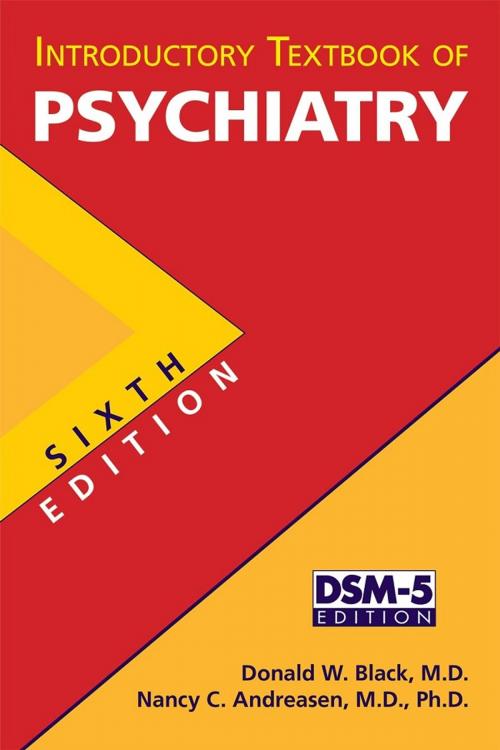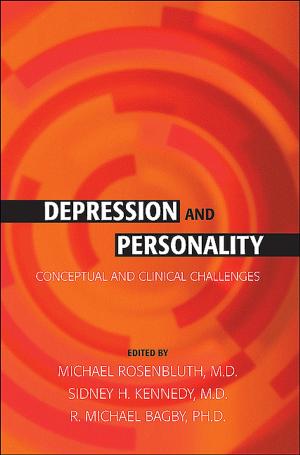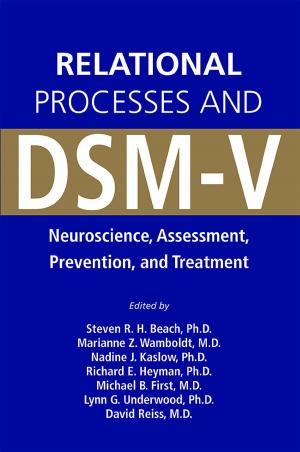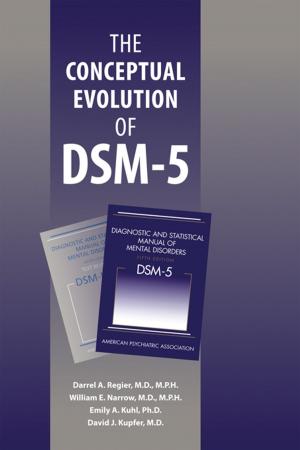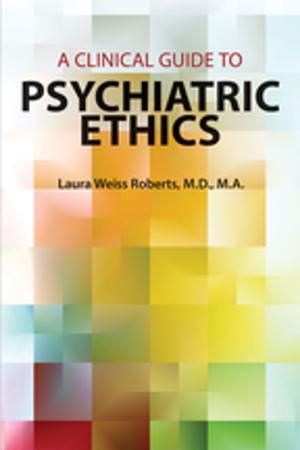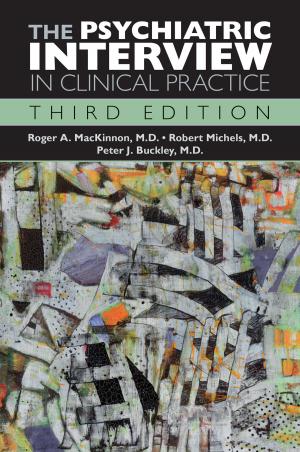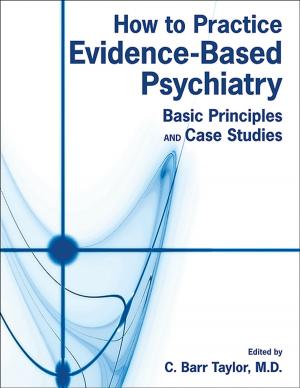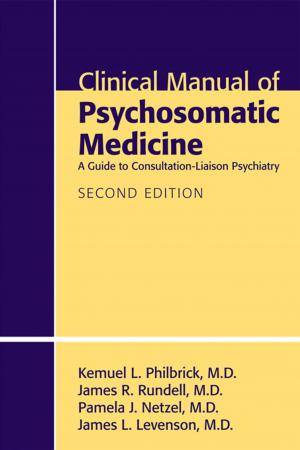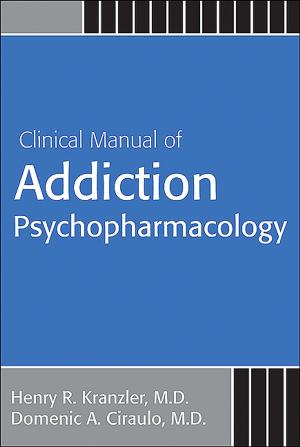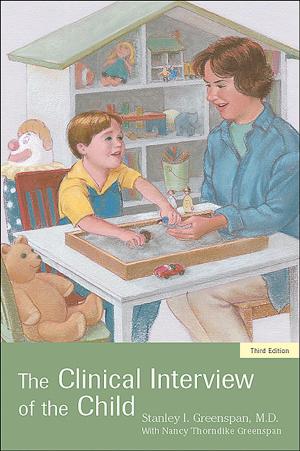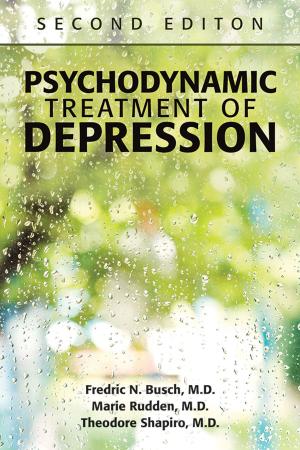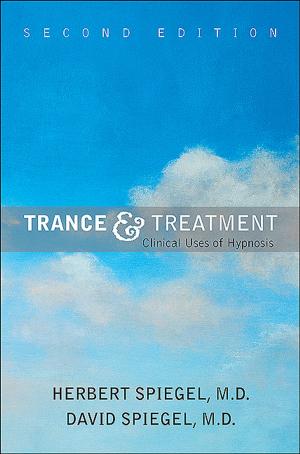Introductory Textbook of Psychiatry
Nonfiction, Health & Well Being, Medical, Specialties, Psychiatry| Author: | Donald W. Black, MD, Nancy C. Andreasen, MD PhD | ISBN: | 9781585625383 |
| Publisher: | American Psychiatric Publishing | Publication: | April 25, 2014 |
| Imprint: | American Psychiatric Association Publishing | Language: | English |
| Author: | Donald W. Black, MD, Nancy C. Andreasen, MD PhD |
| ISBN: | 9781585625383 |
| Publisher: | American Psychiatric Publishing |
| Publication: | April 25, 2014 |
| Imprint: | American Psychiatric Association Publishing |
| Language: | English |
Thoroughly and scrupulously updated, the sixth edition of the Introductory Textbook of Psychiatry has been reorganized and rewritten to reflect the reformulated DSM-5® diagnostic classes, rendering all other texts obsolete. No other introductory psychiatry text incorporates up-to-date information on all of the major disorders, arranged by DSM-5® diagnostic class, along with current treatment information. Designed to provide medical students and beginning residents with a solid foundation and orientation to the field, the book has also been proven valuable to a variety of training programs, including advanced registered nurse practitioners, physician assistants, social workers, and psychologists. An abundance of useful features should win this new edition equal popularity and classic status: The authors are accomplished writers as well as clinicians, and they have produced a volume that is consistent in style, very readable, and highly engaging. The redundancies sometimes encountered in a text with many authors have been avoided. An exhaustively researched and scientifically rigorous section devoted to the neurobiology and genetics of mental illness has been included, because psychiatry is a scientific, as well as a clinical, discipline. The detailed introduction to the psychiatric interview provides interviewing techniques, tips on taking the clinical history, and specific questions that may be asked to elicit information useful to diagnosis. New medications have been released since the last edition, and more has been learned about existing drugs. All are addressed in detail here. A host of reader-friendly features -- including interesting case vignettes, clinical points, chapter-by-chapter self-assessment questions, an up-to-date glossary of terms, and dozens of tables and figures -- promote learning and help the reader to gauge progress. Those studying for their board examinations will find them especially helpful.
Grounded in the authors' long clinical experience and scholarly expertise, the Introductory Textbook of Psychiatry is a pedagogically sound and beautifully written text that is equal to the science and mystery of its subject. A new generation of medical students and residents will find it as interesting as it is indispensable.
Thoroughly and scrupulously updated, the sixth edition of the Introductory Textbook of Psychiatry has been reorganized and rewritten to reflect the reformulated DSM-5® diagnostic classes, rendering all other texts obsolete. No other introductory psychiatry text incorporates up-to-date information on all of the major disorders, arranged by DSM-5® diagnostic class, along with current treatment information. Designed to provide medical students and beginning residents with a solid foundation and orientation to the field, the book has also been proven valuable to a variety of training programs, including advanced registered nurse practitioners, physician assistants, social workers, and psychologists. An abundance of useful features should win this new edition equal popularity and classic status: The authors are accomplished writers as well as clinicians, and they have produced a volume that is consistent in style, very readable, and highly engaging. The redundancies sometimes encountered in a text with many authors have been avoided. An exhaustively researched and scientifically rigorous section devoted to the neurobiology and genetics of mental illness has been included, because psychiatry is a scientific, as well as a clinical, discipline. The detailed introduction to the psychiatric interview provides interviewing techniques, tips on taking the clinical history, and specific questions that may be asked to elicit information useful to diagnosis. New medications have been released since the last edition, and more has been learned about existing drugs. All are addressed in detail here. A host of reader-friendly features -- including interesting case vignettes, clinical points, chapter-by-chapter self-assessment questions, an up-to-date glossary of terms, and dozens of tables and figures -- promote learning and help the reader to gauge progress. Those studying for their board examinations will find them especially helpful.
Grounded in the authors' long clinical experience and scholarly expertise, the Introductory Textbook of Psychiatry is a pedagogically sound and beautifully written text that is equal to the science and mystery of its subject. A new generation of medical students and residents will find it as interesting as it is indispensable.
